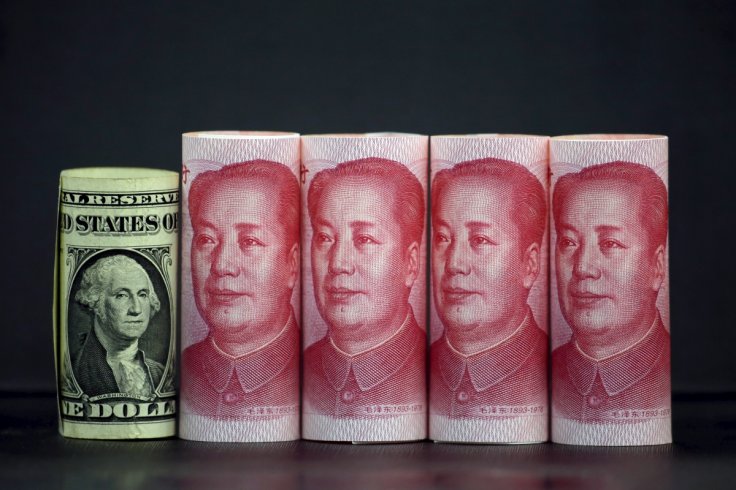The US dollar has lost 11 percent of its market share since 2016, analysts have said, indicating that the prospect of the greenback losing its status as the undisputed reserve currency is strong.
According to analysts at Eurizon SLJ Capital, the pace at which the US dollar is losing its reserve status has steeply increased in the last decade. This happened as many countries or alternatives to the US dollar after the US and the western allies targeted Russia's financial system and sought to cut it off international lifelines following the Ukraine war.

Stunning Collapse
"The dollar suffered a stunning collapse in 2022 in its market share as a reserve currency, presumably due to its muscular use of sanctions ... Exceptional actions taken by the US and its allies against Russia have startled large reserve-holding countries," wrote analysts Stephen Jen and Joana Freire, according to Bloomberg News.
Analysts and financial leaders had pointed out last year that the rampant use of the US dollar as a financial weapon has long-term consequences. They said the strategy will ultimately harm the US.
Diversification of Reserve Base
For example, IMF chief economist Gita Gopinath said that as more countries use other currencies in global trade, the result will be a further diversification of the reserve assets. "Countries tend to accumulate reserves in the currencies with which they trade with the rest of the world, and in which they borrow from the rest of the world, so you might see some slow-moving trends towards other currencies playing a bigger role [in reserve assets]," Gopinath said.

The tough sanctions against Russia included the unprecedented restrictions imposed on the Russian central bank. But such moves could encourage the emergence of small currency blocs based on trade between separate groups of countries, Gopinath told the Financial Times last year.
China's Ambitions
China has always been seen as harboring ambitions to topple the US dollar's status as the safe haven currency. The increasing status of the Chinese yuan as a favored currency for international trade has often set off talks of the renminbi once replacing the dollar as a reserve currency. Though that is a far fetched possibility considering that the Chinse yuan needs to achieve full convertibility status, more and more countries are abandoning the US dollar for international trade.

Last year, Saudi Arabia announced a huge policy shift when it said was exploring the chances of pricing some of its oil sales to China in yuan, sidestepping the US dollar. "The dynamics have dramatically changed. The US relationship with the Saudis has changed, China is the world's biggest crude importer and they are offering many lucrative incentives to the kingdom ... China has been offering everything you could possibly imagine to the kingdom," a Saudi official reportedly told the WSJ.
Financial Weapon
Another eminent analyst also said the overuse of the dollar as a financial weapon leads to an inevitable diversification of the reserve base. The rampant use of dollar for financial sanctions will force other major economies to diversify investments into alternative currencies, Zongyuan Zoe Liu, a fellow for international political economy at the Council on Foreign Relations, told Reuters.
Until some 20 years ago, the US currency had the status of 'indisputable hegemonic reserve', according to the analysts. Around 2001, the US dollar 73 percent of the global reserves were held in the US dollar. However, at present this has shrunk to 58 percent.








